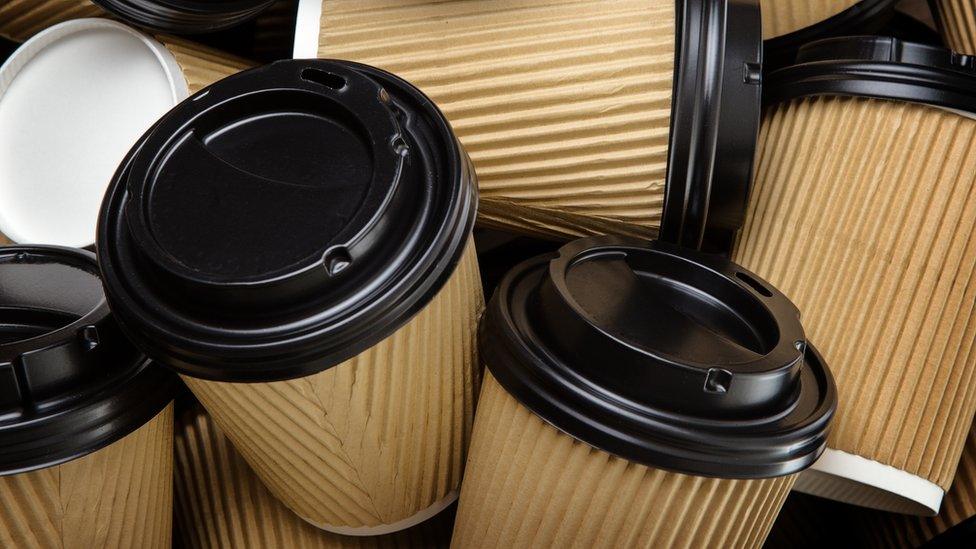Plastic pollution: Grass 'could be used for packaging'
- Published
- comments
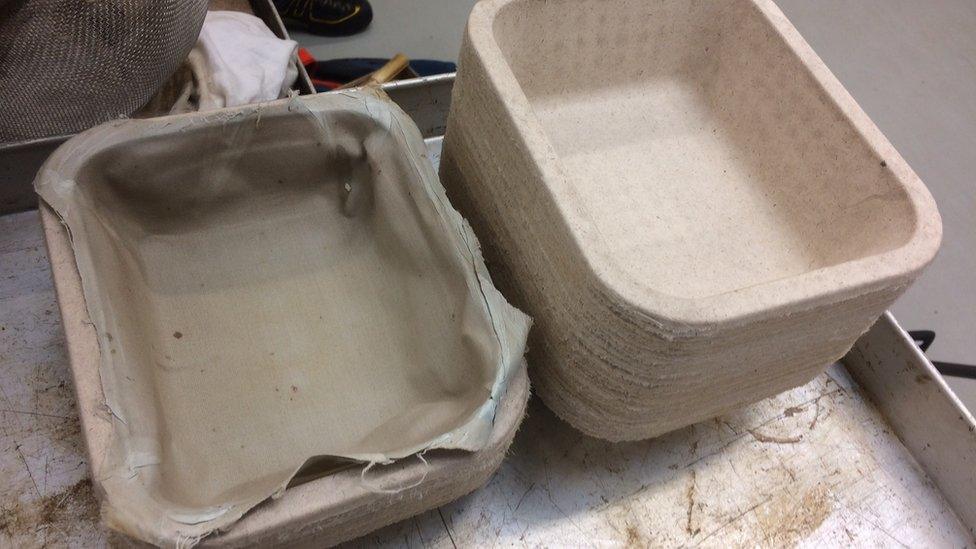
The food packaging trays are made from grass, straw and maize stalks
Grass, straw and maize stalks could provide alternatives to plastic packaging, scientists have said.
Bangor University researchers are working with leftover farming materials to create trays for fresh fruit, vegetables and eggs.
They say the research could also provide an extra source of income for farmers in African countries such as Uganda.
Work has been taking place in Mona, Anglesey, to create the trays.
Plant fibres are being mashed up and pressed into shallow trays similar to plastic ones already in use in supermarkets.
Dr Adam Charlton said: "We spend a lot of time working with agricultural leftovers, things that people don't do much with.
"That could be wheat straw or grass from the UK or maize stalks in Uganda."
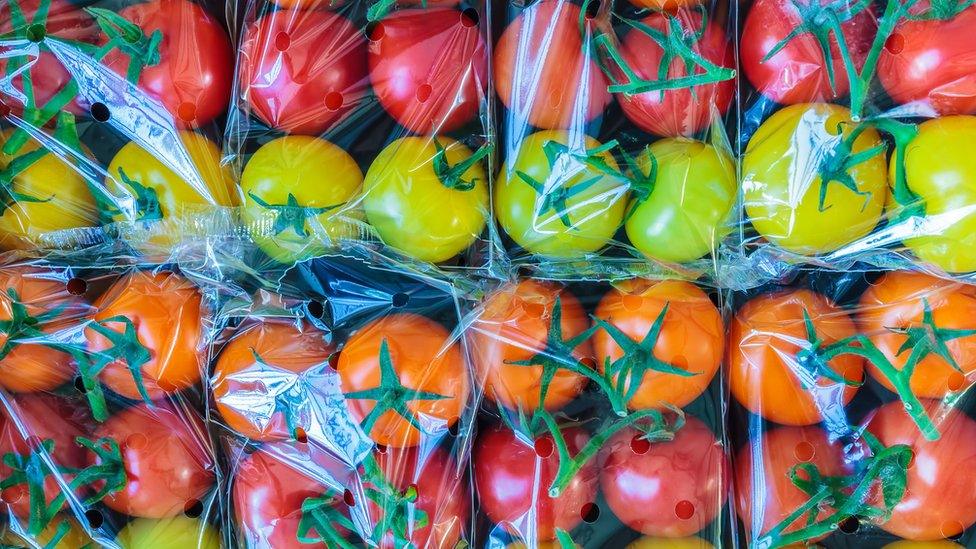
Supermarkets are trying to cut down on their use of plastic packaging
He said the materials are compostable, and already produced in large quantities by farmers.
"Even if they're being used as animal feed, there's enough surplus to divert some into alternatives like this," Dr Charlton said.
"This research could add value to materials that farmers currently aren't using.
"All of the UK supermarket retailers are desperate to solve the problem around single use plastics."
Academics at Makerere University in Uganda are working with the Bangor scientists to look at whether waste maize stalks could be used to produce food packaging there.
They estimate 30-40% of the country's fruit and vegetables are wasted before reaching the market due to not being adequately protected.
Research by Bangor University has already developed egg boxes from grass, which are now being used by the supermarket Waitrose.
- Published10 April 2019

- Published13 September 2019
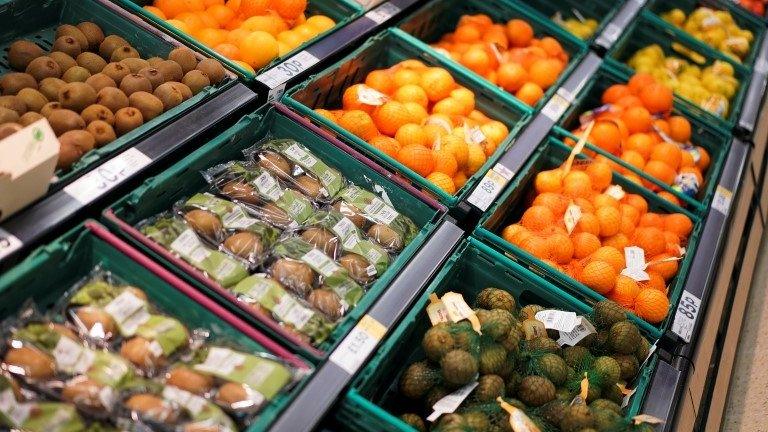
- Published12 November 2019
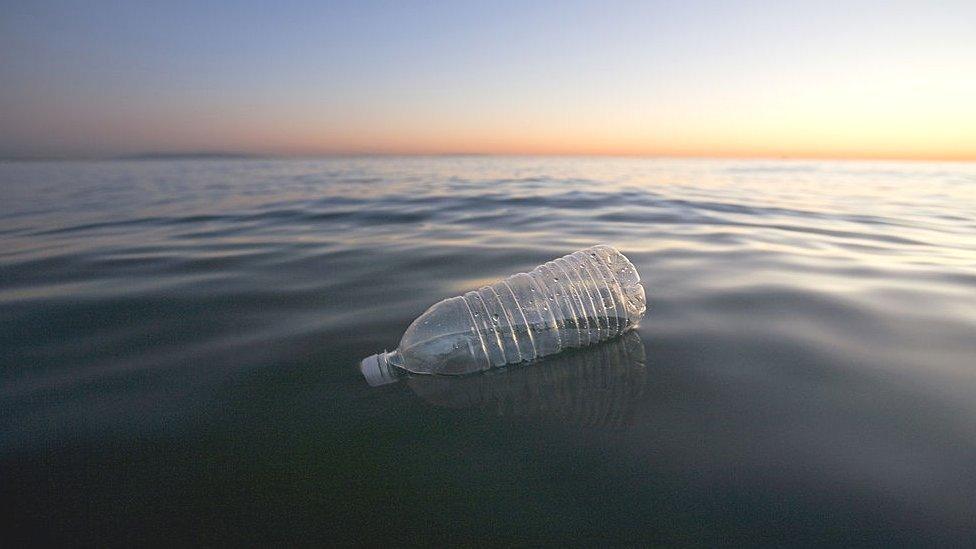
- Published16 October 2019
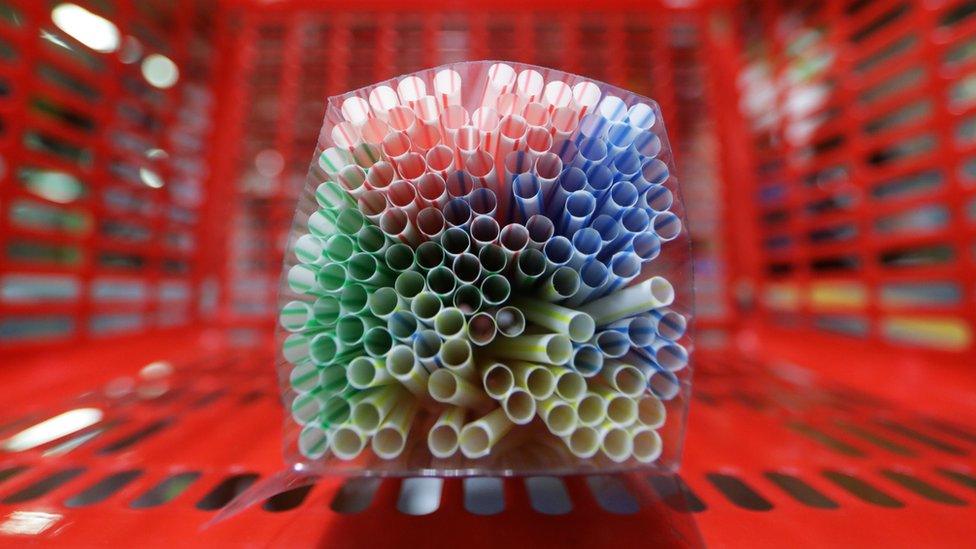
- Published16 October 2019

- Published12 August 2019
